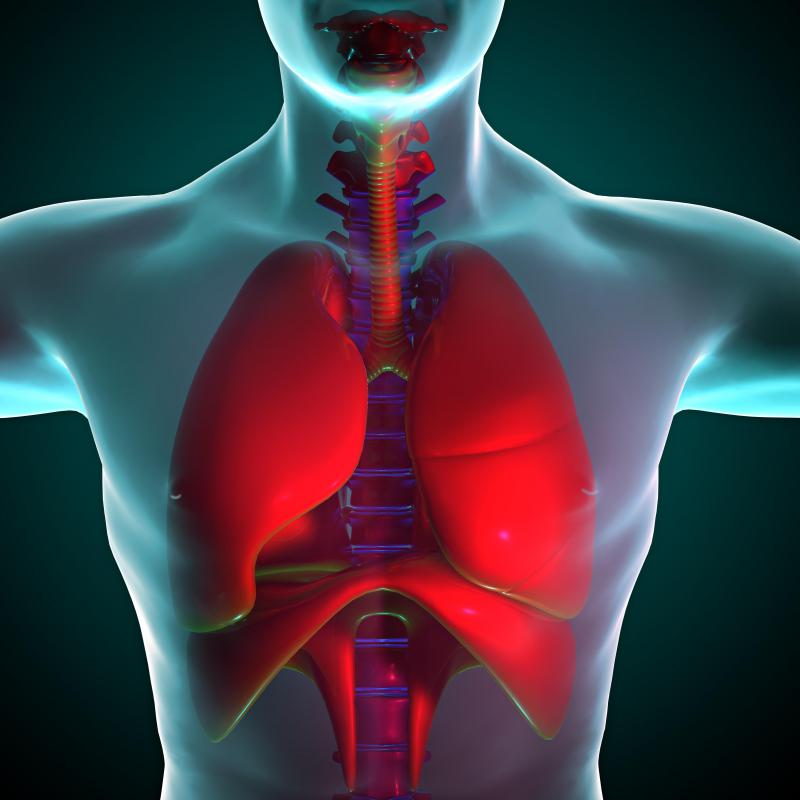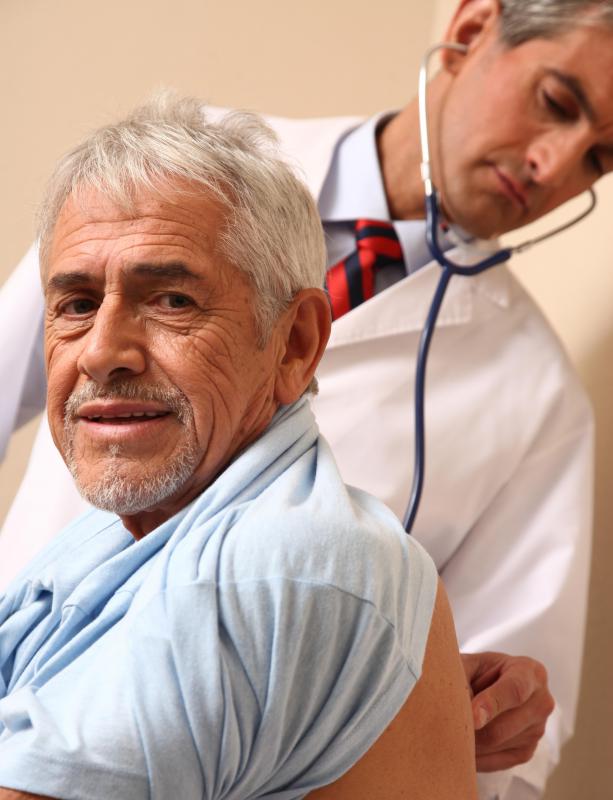At TheHealthBoard, we're committed to delivering accurate, trustworthy information. Our expert-authored content is rigorously fact-checked and sourced from credible authorities. Discover how we uphold the highest standards in providing you with reliable knowledge.
How does the Respiration Process Work?
Respiration involves many actions inside the human body that not only help bring needed oxygen into the blood, but also eliminate some waste from the body. In general, the respiration process can be divided into four stages. In these stages, different respiratory organs play a role.
The first stage is ventilation, wherein the actual breathing action is experienced. The mouth or the nose collects through their openings the surrounding air, which passes through the larynx and the trachea. The air goes through an initial filtering through the cilia, microscopic hairs that line the air passages, before going inside the bronchi. The bronchi, then, distributes the air into both lungs, before expelling the air back when the person exhales.

While inhalation and exhalation are taking place, the three other stages also occur with it. The second stage of the respiration process is the pulmonary diffusion or gas exchange, which occurs right after the person inhales the air. The gases, mainly oxygen, inside the lungs are distributed to the bloodstream through the lungs’ pulmonary capillaries. The oxygen is carried by the blood’s hemoglobin, and when oxygen is infused, blood turns red.

The third stage is the gas transport, wherein the oxygen is transported in the different body organs. The heart may be a part of the circulatory system, but it has a significant role in the respiration process. The oxygenated blood inside the pulmonary vein would have to go through the left ventricle, which pumps the blood to the aorta, the largest artery in the human body. The blood is then distributed to the different parts of the body.

Peripheral gas exchange is the fourth and final stage in the respiration process. While carrying oxygen towards the different organs, the blood also does a double duty of transporting carbon dioxide back to the lungs. During exhalation, carbon dioxide and other waste gases are expelled from the body. Excess oxygen is also ejected by the body.
The respiration process ultimately is a process of gas exchange, with different gases going in opposite directions. The respiratory system nourishes the body with oxygen while eliminating waste gases of carbon dioxide. Without this process, parts of the human body, especially the brain, cannot function properly. While the actions of breathing in and out seem simple, the process is actually quite complicated.
AS FEATURED ON:
AS FEATURED ON:

















Discussion Comments
Respiration is so extremely vital to our health. It does seem simple but it accomplishes a huge task. It keeps us alive and healthy. That's why it's so important for the air to be clean. Pollution does more damage to us than we realize. The lungs rely on clean air to get the oxygen it needs. This is why I'm also against smoking. It's not possible for the cells to stay happy if a person is smoking.
@SteamLouis-- I'm not an expert on this topic. I think there are different causes for hyperventilation, one of which is psychological.
As far as I know, what basically happens during hyperventilation is that less oxygen reaches cells. Hyperventilation is actually very rapid breathing when a person inhales very quickly. One would think that quick inhalation would lead to more oxygen reaching the cells but it's exactly the opposite.
When one inhales very rapidly, the lungs are unable to absorb the oxygen. Less oxygen reaches the cells and if breathing doesn't slow down, the person can even become unconscious. The lack of oxygen leads to symptoms like tingling, numbness in the limbs and light-headedness. It happened to me a few times and it was not fun.
Why does hyperventilation occur and how does it affect respiration?
I need to learn this for biology class. I understand the respiration process but how is the process affected during hyperventilation?
Post your comments